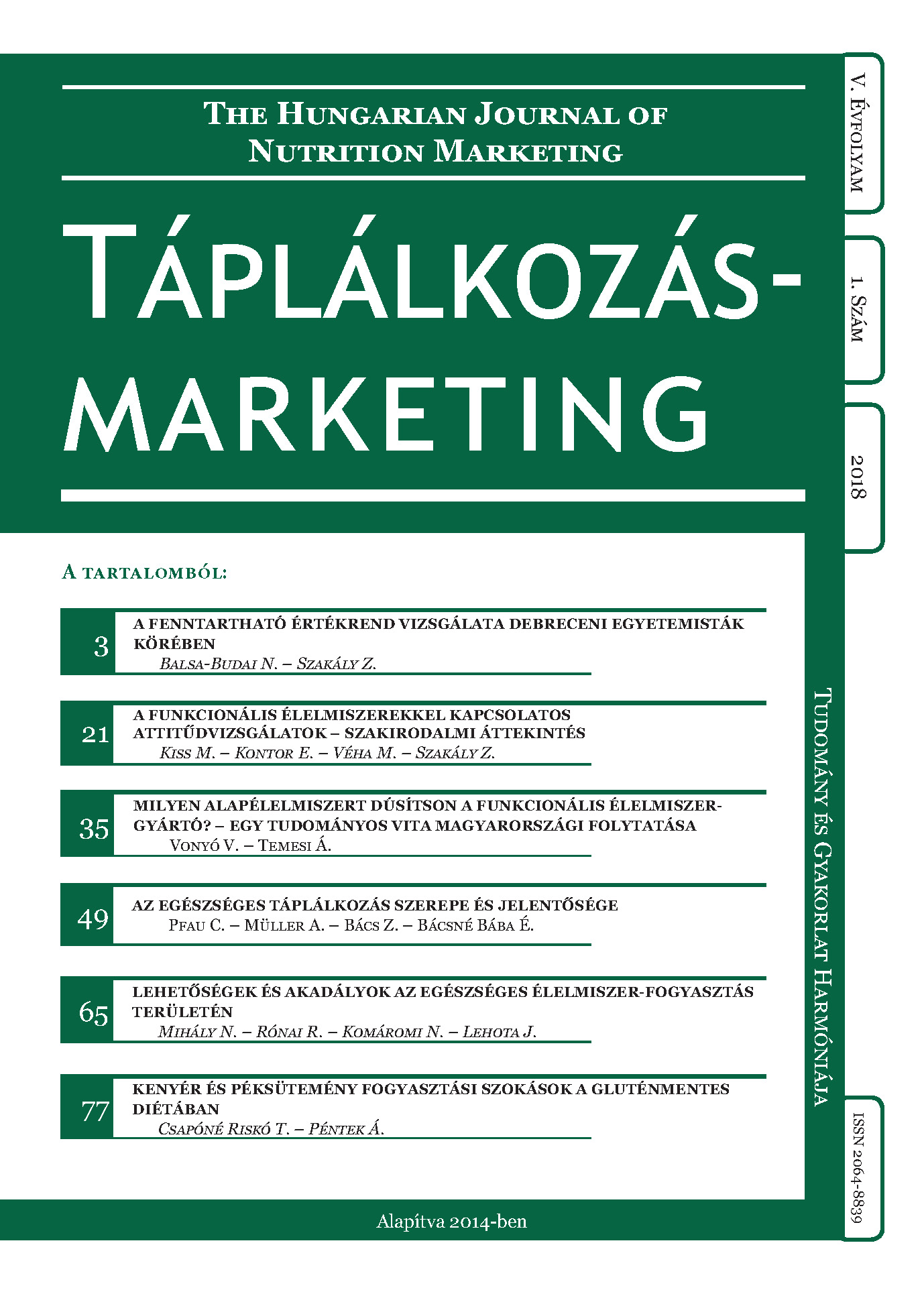Examinations of Attitudes towards Functional Foods – Literature Review
Authors
View
Keywords
License
Copyright (c) 2018 Táplálkozásmarketing

This work is licensed under a Creative Commons Attribution-NoDerivatives 4.0 International License.
How To Cite
Abstract
The current study of our two-part paper series dealing with psychological influences on functional food consumer behaviour focuses on attitudes towards functional foods, while the subsequent study will discuss other psychological influential factors. Several research studies have already examined attitudes towards functional foods but the wide range of available products, the significant international heterogeneity of attitudes and the diversity of the applied research methods make their comparison and generalization remarkably hard. This paper aims to organize these research studies according to specific standpoints, and based on this, to draw generalizable conclusions. Based on the literature review, we can state that attitudes towards functional foods are positive worldwide, and those attitudes have a positive effect on the purchase and consumption of functional foods. There are, of course, international differences in attitude factors that play a significant role in this positive effect, and also in the composition of those factors. These differences can be attributed primarily to the different development stages of markets. However, we can state that the most important attitude factor everywhere is the reward from using functional foods (health protection and promotion, well-being, good performance and mood) that has to be forwarded stated simply and obviously towards the consumers in marketing communication messages. Besides this, social necessity (including medicine-like effects) of and confidence in functional foods also influence the intention for consumption, thus, the healing effect can also be a useful buzzword in messages. In the less developed markets – such as Hungary – confidence includes the belief in the safety of the products indicating the fact that where consumers are not familiar with these products, perceived risks of functional foods can be a strong barrier to their consumption. Therefore, a key role of marketing communication messages in those markets is the reduction of perceived risks. It is worth noting, however, that functional foods cannot be seen as a homogeneous food category, thus the importance of different attitude factors may vary between the different types of food. Additionally, consumers cannot be seen as one, homogeneous group, either, therefore different marketing communication messages developed according to the attitude-based segments will be effective.
JEL codes: D11, M31


 https://doi.org/10.20494/TM/5/1/2
https://doi.org/10.20494/TM/5/1/2





